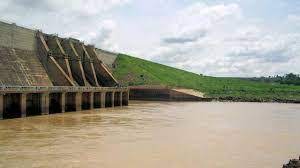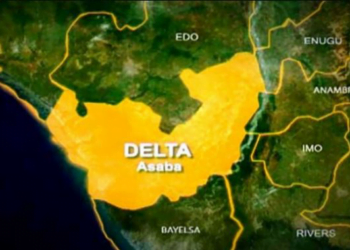Mohammed Kuta Yahaya is a professor of agricultural extension at the University of Ibadan. In this interview with AWAAL GATA, the extension communication expert and former secretary to the government of Niger state said a ministry for livestock and aquatic development needs to be created in Nigeria, to optimise its agricultural potentials.
How would you appraise the agricultural policy of this administration?
We have been coming with so many policies on agriculture in Nigeria, historically. We have come through different phases, from pre-colonial, colonial and we are now in post-colonial. We have, at different times, multitude-based interventions and so on; until the World Bank came in around 1973 and they started enclave projects in Gusau, Gombe and Bida. It later became nationwide in the late 80s. Unfortunately, it was driven by funding and structure that was imposed based on Training and Visit type of [agricultural] extension.
Apparently, the Indian who pioneered this type of extension was using it based on the parameters of World Bank ideas imposed on our system. After the World Bank funding ended, all the ADP structures collapsed, paving the way for inward-looking ideas on how to revitalise extension. And the march has been going on over the years.
President Muhammadu Buhari’s position for the diversification of Nigerian economy is very commendable. He has been deliberate in agriculture as the fulcrum of the diversification agenda. His administration has been promoting all the variables that make agriculture thrive. He inherited the agricultural policy of the Goodluck Jonathan’s administration, which had to initially do with agricultural transformation agenda. I must say ‘kudos’ to President Buhari for his doggedness which has now made agriculture very viable in Nigeria. For the first time in our country, fertiliser is available at a controlled price, unlike before. Fertiliser used to be very scarce and too expensive for farmers to purchase, but the present administration has changed the narrative, after understanding its importance to farmers.
However, I would love to call on the government to start engaging development communication experts in its agricultural policy drives. They are not being involved at the moment, and it is affecting policy implementation.
Across the globe, some people have argued that climate change has not had any effect on human beings and the environment; what is your view on that and would you say that it has affected agriculture in Nigeria?
You don’t need to be an expert before identifying that climate has changed. In Nigeria, there is no way agriculture can thrive if the change in climate is not brought to the fore. This will save the people from being victims of the sort of flooding that happened across the country recently. It is one of the effects of climate change. Our farmers need to be sensitised and prepared for it, and that is the job of agricultural extension professionals.
At the moment, extension professionals are not being involved in the agricultural policy drives. It is not done in other countries. The government needs to involve them in policy dialogues and designs. Our farmers are not often properly informed, because of government’s lack of engagement of extension workers. That needs to be promptly changed.
If extension professionals were being engaged over the years, farmers and herders’ clashes would not have got to the level it has now. There is a fundamental gap which would have been fixed by extension professionals.
As a country, have we been genuinely catering for herdsmen? It is not that I am supporting criminality, but we have been wrongly labelling the herdsmen. It is wrong to be dishing out such a blanket labelling. As far as I am concerned, if we have been giving the attention we have been giving to crop production to livestock things would have been different. People hardly talk about livestock. The Fulani herders, who has cared for them? Hundreds of thousands of cattle are being slaughtered for consumption every day, but nobody cares about the people making the cows available. Has there been a policy that will call for initiatives that will engender breeding of cattle as we encourage researches on crops? How many researches have been conducted on livestock that would enable us to come up with cattle that can be fast growing, resistant to diseases and produce plenty milk?
The only people that are enjoying as far as livestock is concerned are the people who are into poultry. What about the Fulani man and his cattle? Fulani people have sold their cattle because of high demand, yet they are not being supported to breed more. Cows are getting fewer every day. Fulani people are losing their means of livelihood and we are not helping them. We need to cater for them the way others are being catered for. I am not supporting criminality, but they should be integrated into the agricultural fabric of Nigeria. On that note, I will advocate for the establishment of a Ministry of Livestock Development. Policy alone is not enough.
Livestock development needs special attention, so a ministry needs to come on stream. We cannot do it under a subsumed system that we have been doing. You need somebody to pay attention to where your low-hanging fruits are. I can tell you that even the veterinary services that are located at some of the hinterlands where you have some of these livestock farmers before have all been jettisoned. The NVRI in Vom which has the mandate for the production of vaccines for the whole of West Africa is being underfunded. When we talk about researches, we have so much concentrated on the crops. Only livestock ministry can address the issues.
Some experts are against the ban on rice importation; do you think the government is right to have imposed the ban?
I am always commending the Buhari administration for the ban. It is boosting domestic production. You cannot be feeding other countries with your employments and foreign exchange. I respect the consistency of the ban, unlike before when there would be a ban yet illegal importation would still be going on because of the insincerity of the government. This time around, travel around the country, and you will see a massive production of rice. There are many smallholder rice processing plants across the country; thanks to the present administration.
What is your view on the Water Resources Bill that has been stirring controversies recently? Do you think it should come on stream?
Everything that you see happening in our country is because extension professionals are not being involved. If you want to design a policy (agricultural), extension professional must be involved throughout the process for it to work as envisioned. We are in a country where we are living in mutual suspicion; so, if you want to do something, no matter how good, somebody would be somewhere trying to frustrate it. To have this, we need to have an umbrella body. I am sure that Nigerian Forum for Agricultural Advisory Services and Agricultural Extension Society of Nigeria that have partnered to advance frontiers in extension delivery services and policy dialogue can be of help. The unfavourable reaction to the proposed water resources bill is coming from lack of inputs of extension professionals.
Would you call for the establishment of a commission for agricultural extension workers?
The agricultural extension policy document is proposing for the establishment of an institute which would serve as a regulatory body and a reference point for certification of extension professionals. With that, there can easily be a reference for government to consult, and that would make a lot of difference.




